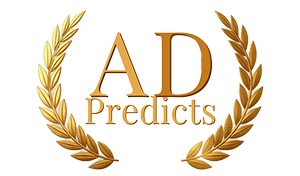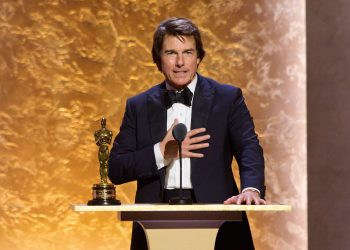Editor Jay Cassidy has a long history with Bradley Cooper. Their relationship goes back to 2012 when Cooper was starring in Silver Linings Playbook by David O. Russell. Cassidy saw Cooper and Russell’s openminded collaboration in cutting room floor. It’s no surprise to Cassidy that Cooper has now taken the helm directing in and starring in A Star Is Born.
I caught up with Cassidy to talk about editing the film and working with a musical narrative, getting the balance right. Read our chat below:
You’ve worked with Bradley Cooper before but not on a director level, but as an actor/producer in the David O’ Russell movies?
I think Bradley in his life has always wanted to be a director. He’s made it a point, even before I knew him, to visit cutting rooms and learn from people he’s working with. With David, they developed a very strong collaboration with creating that character for Pat Solitano. David very much encouraged Bradley to come to the cutting room because he wanted Bradley to be comfortable with the performance choices. If you remember, Pat is living that delusion about his wife and the behavior. If it’s too extreme you would lose the audience. David was very solicitous about Bradley’s opinion about the performance, but what developed was that Bradley had some very interesting ideas about the storytelling which David allowed him to try and some of those were incorporated into the final film.
That relationship then continued and so did that collaboration into American Hustle. He’d come for weeks at a time into the cutting room. He’d have things that he was thinking about as if he had directed the movie. He’d say things like, “I’d like to try this concept or this cut.” David would let him and that collaboration was something that I loved. It was very similar to working with Sean Penn. In his world, where he brought some actors into the cutting room and so it was something I was used to.
The result of the three David films was that Bradley and I were very comfortable together in the cutting room. I didn’t feel like it was a big step but rather an extension of what I’d been doing with David.
OK, let’s jump into the movie. Let’s talk about cutting Shallow because it’s such a key moment for Ally in the film.
That was something we worked out early. We worked out the structure of what it was going to be with the long instrumental and the intercuts of Jackson Maine playing as she’s approaching. It was like the piped piper and that was the idea behind it. When Bradley shot it, you conceive something, but you shoot it and you often have variations in the shooting. In this case, it wasn’t a big fit, but we did fit it together. Once we had the intercutting of the two of them and she’s drawn into it, the mantra of this movie was always, “Stay with the singer” and don’t overcut the performances. If you look at the very last song, if you exclude the little flashback shots, it’s three shots for the whole three minutes.
Bradley’s intention was always to be on the stage with the singer or the musician and the audience is a third person presence. You never see our guys playing from the audience’s point of view, it was always from a camera on stage. That’s maintained and it’s established from the very first scene at Stagecoach when he’s taken the pill and goes off to sing and it stays that way through the entire film.
How did you cut the film to ensure you had the balance of her ascension to stardom and his downward journey and how did previous versions affect the story cutting?
In this interpretation of the story, I think it was important that Jackson Maine’s character, he’s on this downward trajectory and his meeting Ally probably extended his career. Had he been left alone and not met her, I think his downward trajectory, with his loss of hearing and all those elements, we didn’t want the dynamic that her rise be the cause of his downfall. He’s not envious of her. He encourages her at every turn. His only concern is that she remains true to her own voice and what she wants to say. That’s a little different than the previous versions. Bradley wanted a more authentic version rather than just a version of her career rises so his would crash, it’s a little too simplistic for 2018.
There’s a striking balance of the narrative, the music, the tone that’s just so right in this. Talk about getting that just right.
It’s difficult to know what we did looking back. If you could bottle it, you’d be a rich person. There’s a certain alchemy in editing a movie where you try certain things, the cut evolves, you learn things and you show the movie to people you trust or people who might have been involved in the writing, and if you’re open to responding and listening to the voice about how successful you are in telling this story, people are remarkably inarticulate about having seen a movie, they may say they liked something or they didn’t but it’s always referred pain. There’s something that happened before, a set up wasn’t successful or there’s something that happened in the story, we who are close to it think it’s doing something, but for a fresh audience, they may not get it the way they want, so that process in the editing is a lot of soul searching to make sure you don’t have your own preconceptions and cloud your responses to the film. There’s a certain humility involved and you have to listen to what people say about whether they like it or they don’t, or they have criticisms. You listen to all of that because they’re not coming from a place of wishing you wouldn’t succeed, they’re truly feeling an affection for us as filmmakers and you hope you’re able to do it as well as you can.
In the opening, you use the jump cut with Jackson in the limo.
We timed it out with the music and it’s on the beat. We created the musical extension with the bass notes to carry into the car.
You’re no stranger to cutting music. You cut Justin Beiber’s Never Say Never and you’re working with music here. The music here is all live.
I’m so glad everyone knows that and I think it makes a huge difference in the performances.
Take us inside the process of working with music when it’s part of the narrative.
Every song has a function in the story. Some songs, like the function of Shallow is what it is. It justifies playing the whole song because it’s so important. There are other parts where you just have snippets and you’ve told the particulars of what needs to be told. You only use part of the song and it would be an indulgence to stay longer with the song. What’s more is you lose the audience because they wouldn’t know why they’re seeing the song at this length.
We had some tough decisions about truncating songs and fitting them in. There were great performances, but you can’t because the function of the song is this and once it’s done what it needs to do, you better get out, move on and the audience is happy you did.
Was there a part that was tough to truncate and was there a first cut that was longer?
There was never a first cut. They shot many more songs and some of the same songs in different locations with different concert pieces. We had tons of pieces of songs that we considered a huge library that we could draw on to tell the story. We did a lot of cutting to get it to the point where you could piece it together to tell the story.
The first time we looked at it was probably just 25 minutes more where scenes were longer, there were few things lifted out wholesale. The scenes were simplified and the story was clearer for it.
There are so many scenes to talk about but talk about the dynamic we see with the cake smearing scene because it’s probably the first true insight we actually see what she’s dealing with when it comes to acceptance.
The way that scene is constructed, she is talking to the other character and she’s being offered the future and she’s saying, “I gotta see Jack” and we don’t see her, we see him. We stay with him through the whole explanation of what she’s gone through and we just watch him collapse. She makes the excuse for him and says “He always does that.” The accommodation she’s making for his drinking is the beginning of that dynamic and it’s the first time you see what she’s willing to accept in him because she loves him but she knows his behavior is abusive to himself.
How much freedom do you have as an editor to assemble the material?
We had spent enough time with the script and what he’s trying to do and what he shoots on the set might be different to what’s on the page. So, there’s this exploration process when you get the material. It means you might cut a different version of the scene at the beginning because there are alternate ways the scene could go. You’re doing it on your own at the beginning because he’s still out doing the movie, but at the same time, we’re constantly talking about what is going on out there on set. That’s valuable to me because you can sort through it and get to where he evolves with the actors on the set, you can see that progression and use the material that is most of all.
I saw it at the Shrine Auditorium. What an experience.
I was there too, but there were 2300 people and you lost lines because they were cheering and you lost that whole song at the end because everyone was clapping. I don’t think there will be many screenings that we’ll attend where presenting a movie on that scale was such a rarity. That’s a Hollywood moment and an accomplishment to see a film like that on that scale.













